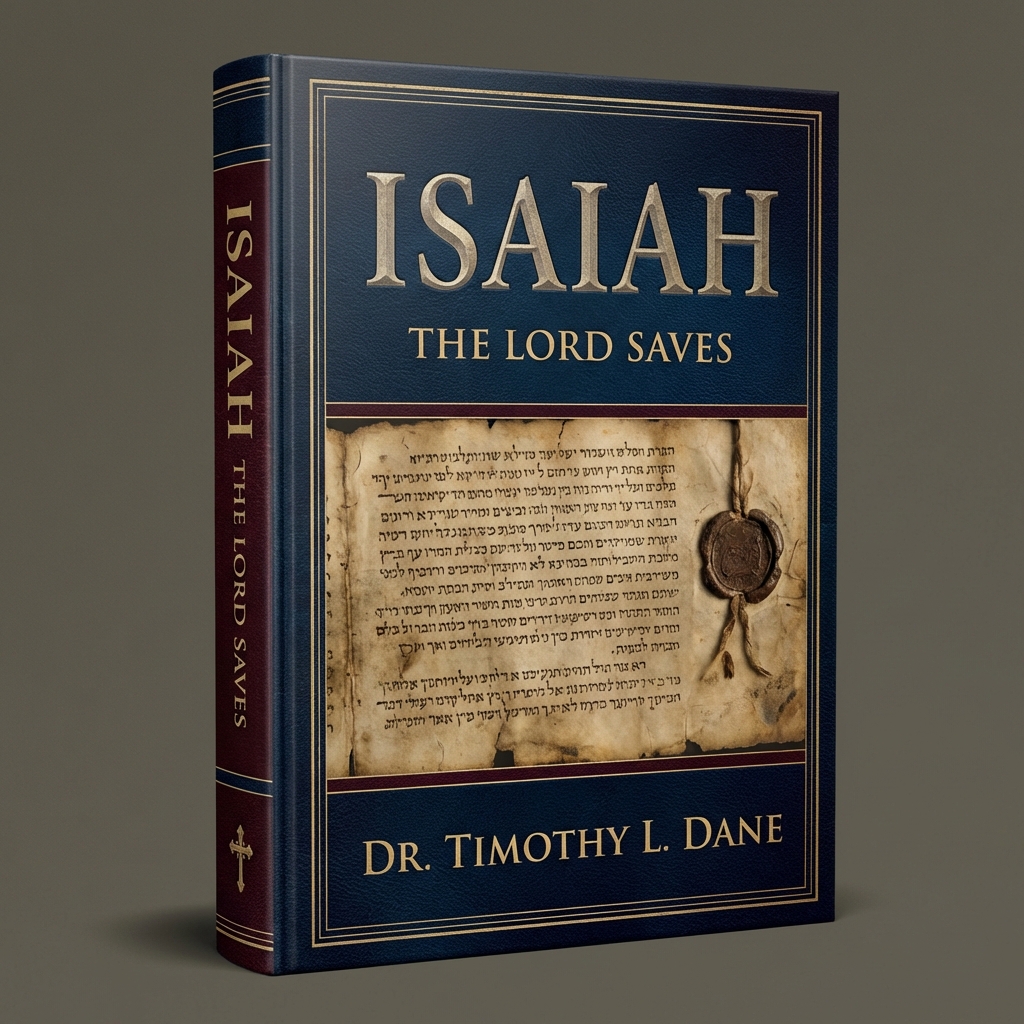
The Cost of Holiness: Faith, Risk, and the Pilgrimage Feasts
An exploration of the pilgrimage feasts and their significance in understanding the cost of holiness, faith, and risk in biblical worship.
God's Glory in the Church — A Biblical Case for Cessationism
Featured Speakers:
"If you want to grow in your faith and the knowledge of our Lord Jesus Christ, Front Range Bible Institute is the place to be."
— Joe F., Pastor & FRBI GraduateFRBI stands apart through its multi-church, regional model—bringing together gifted pastor-teachers from across the Front Range to provide accessible, rigorous biblical training. We're raising the bar while extending the reach.

Learn from multiple gifted pastor-teachers in their areas of expertise—Old Testament, New Testament, theology, biblical counseling. You're not shaped by one church culture, but equipped through diverse pastoral wisdom. Students aren't tied to one congregation's fortunes; multiple pastors invest directly, ensuring consistent, excellent training.
Concentrated, in-person formation creates momentum and sharpening that dispersed or remote-first models can't replicate. Our central location draws bright minds and committed hearts together for life-on-life pastoral formation—not shortcuts through screens.
Certificate programs broaden the funnel—inviting lay leaders and ministry explorers to "come and see" through flexible, affordable, credit-transferable courses. Then we raise the bar: uncompromising seminary training with biblical languages and rigorous standards when others are lowering theirs.
We welcome students from any sound church without creating barriers or competition. Your home church remains your primary ministry context—we simply equip you alongside other believers from across the region through church-based accountability and regional collaboration.
We believe in BIBLICISM, the absolute authority and sufficiency of Scripture as our ultimate guide for faith and practice. While we learn much from creeds, confessions, and the Christian tradition, we go to Scripture as our final authority in all matters of doctrine and life. This commitment to BIBLICISM shapes every aspect of our academic programs and ministry training.
Our faith is rooted in the fundamental truths of Christianity as revealed in Scripture, including:
We believe in one God, eternally existing in three persons: Father, Son, and Holy Spirit.
We believe that salvation is by grace alone through faith alone in Christ alone.
We believe that the Bible is without error in all that it affirms and is our supreme authority.
We believe in fulfilling Christ's command to make disciples of all nations.
Discover our degree and certificate programs designed to equip you for effective ministry and biblical scholarship.
A comprehensive program providing foundational knowledge in biblical interpretation, theology, and ministry skills. Perfect for lay leaders and those seeking a solid biblical foundation.
An undergraduate degree offering comprehensive biblical education with a focus on original languages, systematic theology, and practical ministry application.
Graduate-level program for those seeking advanced biblical scholarship, research skills, and teaching preparation.
Professional graduate degree preparing students for senior pastoral ministry, church leadership, and advanced theological scholarship.
Explore our full academic offerings including courses, admissions, tuition, and calendar information.
Explore significant academic works and scholarly research from our faculty.

A comprehensive scholarly examination of the cessation of miraculous gifts in the post-apostolic church.

A comprehensive commentary rooted in grammatical-historical exegesis, designed for pastors and laypeople to preach and teach the prophetic book of Isaiah.

A detailed philological and syntactical examination of the Hebrew particle נָה in biblical literature.

An innovative rhetorical analysis of Job 34:11, demonstrating how this verse employs sophisticated literary devices.

A comprehensive examination of New Testament Greek pronunciation and the question of whether God providentially preserves the authentic reading tradition.

An exploration of the pilgrimage feasts and their significance in understanding the cost of holiness, faith, and risk in biblical worship.
Latest articles and essays from our faculty.

An exploration of the pilgrimage feasts and their significance in understanding the cost of holiness, faith, and risk in biblical worship.
Hear from students, pastors, and church leaders about their experience with FRBI.
If you want to grow in your faith and the knowledge of our Lord Jesus Christ, Front Range Bible Institute is the place to be. All classes are based in a faithful interpretation of God's Word and edify you as you dig into God's treasure house lead by faithful professors who are church and ministry leaders in their own right. My time at FRBI allowed me to become a study leader in my church as well as help teach classes in our School of Discipleship. Classes are affordable and will help you expand your knowledge and deepen your faith as you look to lead in a church or other ministry setting. Do not hesitate. If God is calling you to ministry, FRBI is a wonderful step in the right direction.
We're thankful for FRBI for several reasons. First, it's allowed us to receive a theological education that's consistently biblical and pleasantly affordable, all while remaining in and ministering in our home church. Also, we've been delighted at the high caliber of the professors; they're not only impressive in their knowledge but also in their ministry experience. Lastly, we're thankful for FRBI's unflinching love of Scripture. At FRBI students not only learn the Bible but "catch it," as they see it lived out in their professors and fellow students.
I am the pastor of Slavic Bible Church in Colorado Springs. I became a pastor a few years ago while studying at Front Range Bible Institute. I can confidently say that God has used Front Range to influence my personal life and make me a better servant. I would highly recommend FRBI to anyone involved in the ministry who wants to obtain necessary skills for better service, and to those who just want to grow in the knowledge of our Lord Jesus Christ and His majestic Word. It is well worth the time & money.
FRBI has been such a blessing to Grace Bible Church. We have long desired more formal "equipping of the saints for the ministry," & Front Range has been the answer to our prayers. Sunday School teachers, missionaries, future chaplains, saints from all walks of life have benefited from local training that allows them to continue living in Colorado Springs and remain serving in our local church.
I so appreciate the openness of FRBI in allowing homeschooling families to enroll! The classes are taught by biblically grounded professors, and prepare students for life, college, and ministry. They are economical, especially to families. I really appreciate that they take only one evening a week, and are a short term commitment, finishing in @ 12 weeks. We learned so much from all of the classes we have taken, especially the Creation Science class! God bless FRBI!
FRBI partners with local churches to provide accessible biblical education in convenient locations throughout the Front Range.

Colorado Springs, CO
A community-focused church committed to biblical teaching and discipleship, providing a welcoming environment for FRBI classes and ministry training.

Colorado Springs, CO
A vibrant church dedicated to expository preaching and community outreach, offering excellent facilities for theological education and spiritual growth.
Classes are held at these partner church locations for your convenience. Contact us to learn more about our church partnerships.
We are building a community of faithful scholars and ministers committed to biblical truth and excellence in theological education.

Instructor of NT Languages and Theology
Senior Pastor of Mesa Hills Bible Church and author of "The Cessation of the Prophetic Gifts," bringing decades of ministry experience and expertise in New Testament theology.

Professor of Bible and Homiletics
Elder at Grace Bible Church who has served as senior pastor at Springs Bible Church. Expert in homiletics with extensive experience in biblical exposition and practical theology.

Instructor of Old Testament and Biblical Languages
Notable Hebrew grammarian and scholar published in leading academic journals. Has also served in various pastoral roles with expertise in biblical Hebrew and Old Testament theology.

Consultant to the Board • International Bible Conferences Director
Founder of International Bible Conferences with extensive ministry experience across Asia, Africa, and Eastern Europe. Served on FRBI Board for over 15 years, now serving as consultant.

Senior Pastor • Elder at Cross & Crown Church
Serving as pastor of Cross & Crown Church since 1997. Cedarville University and Master's Seminary graduate committed to biblical exposition and theological education.

Instructor of Bible and Old Testament Languages
Professor of Hebrew and Old Testament, bringing extensive expertise in biblical languages and award-winning teaching experience.

Instructor of Bible and Pastoral Ministries
Senior Pastor of Rustic Hills Baptist Church, experienced in pastoral ministry and biblical counseling, committed to training future pastors.

Senior Pastor • High Country Baptist Church
Senior Pastor of High Country Baptist Church in Colorado Springs, committed to expositional preaching, sound doctrine, and the authority of the local church. Emphasizes the sovereignty of God and biblical worship.
Your support helps us continue our mission of equipping saints for God's work.
Pray for our students, faculty, and ministry as we seek to serve Christ.
Your donations help provide scholarships and support our educational programs.
Share your skills and time to support our mission and community.
Choose your donation amount and give securely through PayPal or contact us to learn more about partnering with FRBI.
Secure payment powered by PayPal. Your donation is tax-deductible.